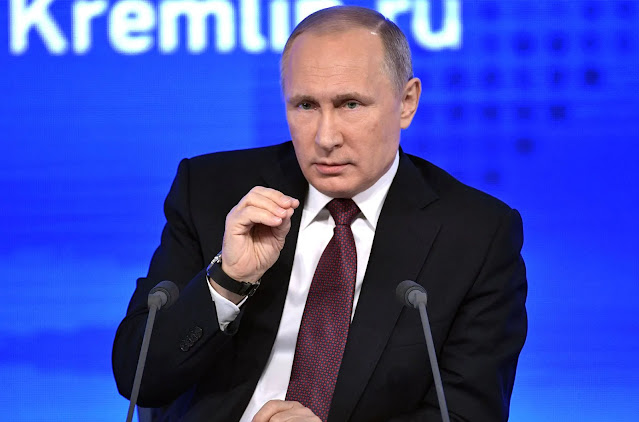Vladimir Putin Profile

Vladimir Putin is the President of Russia, having held the position for multiple terms since 2000. He is a central figure in Russian politics, known for his authoritarian style of governance and significant influence over both domestic and international affairs. His leadership has been marked by an emphasis on restoring Russia's power on the world stage, centralizing political authority, and pursuing a variety of military, political, and economic strategies aimed at consolidating Russian dominance in global affairs.
Early Life and Career
Vladimir Vladimirovich Putin was born on October 7, 1952, in Leningrad (now St. Petersburg), Russia. His family lived under difficult circumstances, especially during the harsh years of post-war Soviet Union. Putin studied law at Leningrad State University, where he graduated in 1975. After university, he joined the KGB, the Soviet Union's security agency, where he worked in various roles, including in East Germany. His background in intelligence shaped much of his political strategy and leadership style.Political Rise
Putin’s political career took off when he became Mayor Anatoly Sobchak's advisor in St. Petersburg during the early 1990s after the collapse of the Soviet Union. He soon moved into national politics, joining the Federal Security Service (FSB), a successor agency to the KGB. By 1999, he was appointed Prime Minister by then-President Boris Yeltsin, who unexpectedly resigned in December of that year, making Putin acting president. Putin won the subsequent presidential election in 2000 and was reelected in 2004.
During his first two terms, Putin implemented reforms that consolidated political power, curbed opposition, and restored state control over key sectors of the economy, particularly in the energy sector. His leadership is credited with stabilizing Russia's economy after the turmoil of the 1990s, driven by rising oil prices and state-led initiatives to regain control over energy resources.
Third Term and Beyond
In 2008, Putin stepped down due to constitutional term limits and became Prime Minister under Dmitry Medvedev. However, he retained significant influence and, in 2012, after a controversial election, he returned to the presidency. A key part of his third term was the consolidation of power and a clampdown on political freedoms, including harsh measures against opposition movements and the press.
Putin was reelected in 2018, and in 2020, Russia passed constitutional amendments that allowed him to potentially remain president until 2036, effectively removing term limits.
Foreign Policy and Controversies
Putin has been involved in a variety of high-profile global issues, particularly regarding Russia's relationship with the West. One of the most significant moments in his presidency was the 2014 annexation of Crimea from Ukraine, which led to widespread international condemnation and sanctions. The crisis in Ukraine sparked a broader conflict between Russia and Western countries, and Putin has since supported pro-Russian separatists in Eastern Ukraine. The 2022 invasion of Ukraine escalated tensions further, leading to severe international repercussions.
Putin’s foreign policy is marked by a desire to reassert Russian influence over former Soviet republics and oppose Western dominance, particularly from the United States and NATO. His government has also been accused of intervening in foreign elections and supporting authoritarian regimes around the world.
Leadership Style and Domestic Politics
Putin is often described as an authoritarian leader who has maintained a tight grip on power through a combination of political maneuvering, legal reforms, and, at times, repression. His government is accused of stifling political opposition, curtailing freedom of speech, and controlling the media. He has successfully positioned himself as the central figure in Russian politics, cultivating a strongman image while maintaining control over Russia’s major political institutions.
Public Perception and Legacy
In Russia, Putin maintains significant support, with many Russians viewing him as a stabilizing force and a symbol of national pride. However, his international reputation is much more polarized, with many seeing him as a figure who has undermined democratic principles and international law in favor of expanding Russian influence.
For further information about Putin's policies and career, reliable sources such as BBC, The New York Times, and The Guardian offer in-depth coverage of his leadership and the broader geopolitical context in which he operates.



Comments
Post a Comment